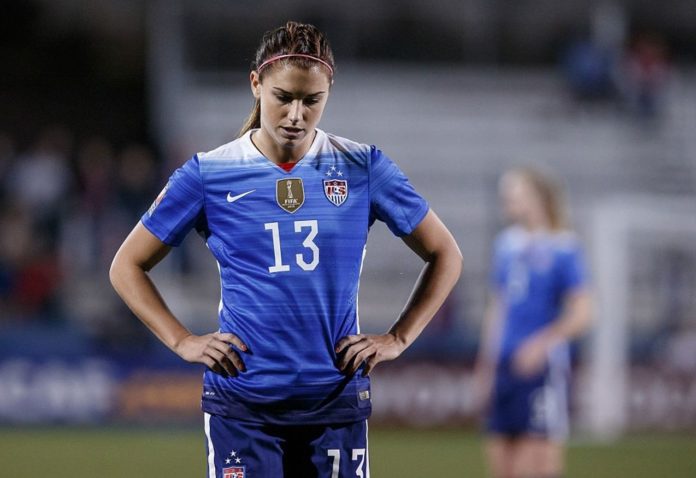A new study published today claims that openly misogynistic attitudes toward women’s sport may be common among male football enthusiasts.
The Durham University-led study, which was based on a survey of 1,950 male football supporters on UK football fan message boards, discovered openly misogynistic attitudes about women’s sport among those polled, regardless of age.
Men’s progressive attitudes were also well-represented, though not as prevalent as hostile and racist sentiments.
This is in light of women’s sport’s growing awareness in recent years, particularly since the 2012 London Olympic Games and the 2015 FIFA Women’s World Cup.
These prevalent misogynistic attitudes, according to the researchers, are a reaction to advances in gender equality. They advocate for increased coverage of women’s sports in order to promote gender equality and social justice.
There were 1,950 male football enthusiasts who answered a call for participants posted on 150 football fan message boards in the United Kingdom.
Lead author, Dr Stacey Pope from Durham University’s Department of Sport and Exercise Sciences, says: “This is the first study to examine UK men football fans’ attitudes to women’s sport in an era in which women’s sport has experienced a significantly increased media profile.
“Our research showed that attitudes towards women in sport are, to some extent, changing, with more progressive attitudes. However, the findings are also reflective of a patriarchal society in which misogyny is rife. There were numerous examples of men from across all generations exhibiting highly sexist and misogynistic attitudes.”
Based on their responses to the survey’s open-ended questions, fans may be divided into three groups: those who displayed progressive masculinities, or overt misogynistic masculinities, and those who displayed covert misogynistic masculinities.
Men with progressive attitudes expressed high support for gender equality in media coverage of women’s sport, with many claiming that the 2015 FIFA Women’s World Cup was a watershed moment in terms of women’s sports representation.
Increased visibility of women’s sports was considered as a method to improve attitudes, inspire girls at the grassroots level, and fight stereotypes about women’s apparent inferiority in sports. The media was perceived to have a responsibility to promote women’s sports more.
The supporters who held openly misogynistic attitudes regarding women’s sport considered it as inferior to men’s sport, particularly football, with some proposing that women should not participate in sport at all, or that if they did, it should be ‘feminine’ activities such as athletics. Increased media coverage of women’s sport was also met with vehement opposition, as it was viewed as “positive discrimination” or “PC nonsense.”
The final group of fans, who were in the minority, would express progressive attitudes in public but in more private moments reveal misogynistic views of women’s sport, adapting what they said depending on the social situation or who they were with.
Co-author, John Williams from the University of Leicester, adds: “The increase in media coverage of women’s sport on both the BBC and subscription channels was openly supported by some men. But it also clearly represents, for others, a visible threat, an attack on football as an arena for ‘doing’ masculinity. This is at a time when there are more widespread anxieties circulating among men about how to establish and perform satisfying masculine identities. For men like these, there was a pronounced anti-feminist backlash towards the women’s game.”
Although the study focused on the specific area of sport, the researchers believe it could be useful in understanding men’s differing reactions to women in other situations, such as the workplace, school, or the creative sectors.
Throughout all of the sport’s history, football has largely been a male realm, and it has arguably remained one of the ‘last bastions’ of male dominance.
Despite the fact that women’s sport still receives less than 10% of annual print and television coverage in the UK, there has been a new era of coverage. The creation of the professional FA Women’s Super League, the triumph of GB women athletes at the London 2012 Olympic Games, and Sport England’s This Girl Can campaign are all examples of recent developments.
Source: 10.1177/00380385211063359
Image Credit: Getty
You were reading: Women’s sports face greater misogynistic attitude from male football fans
